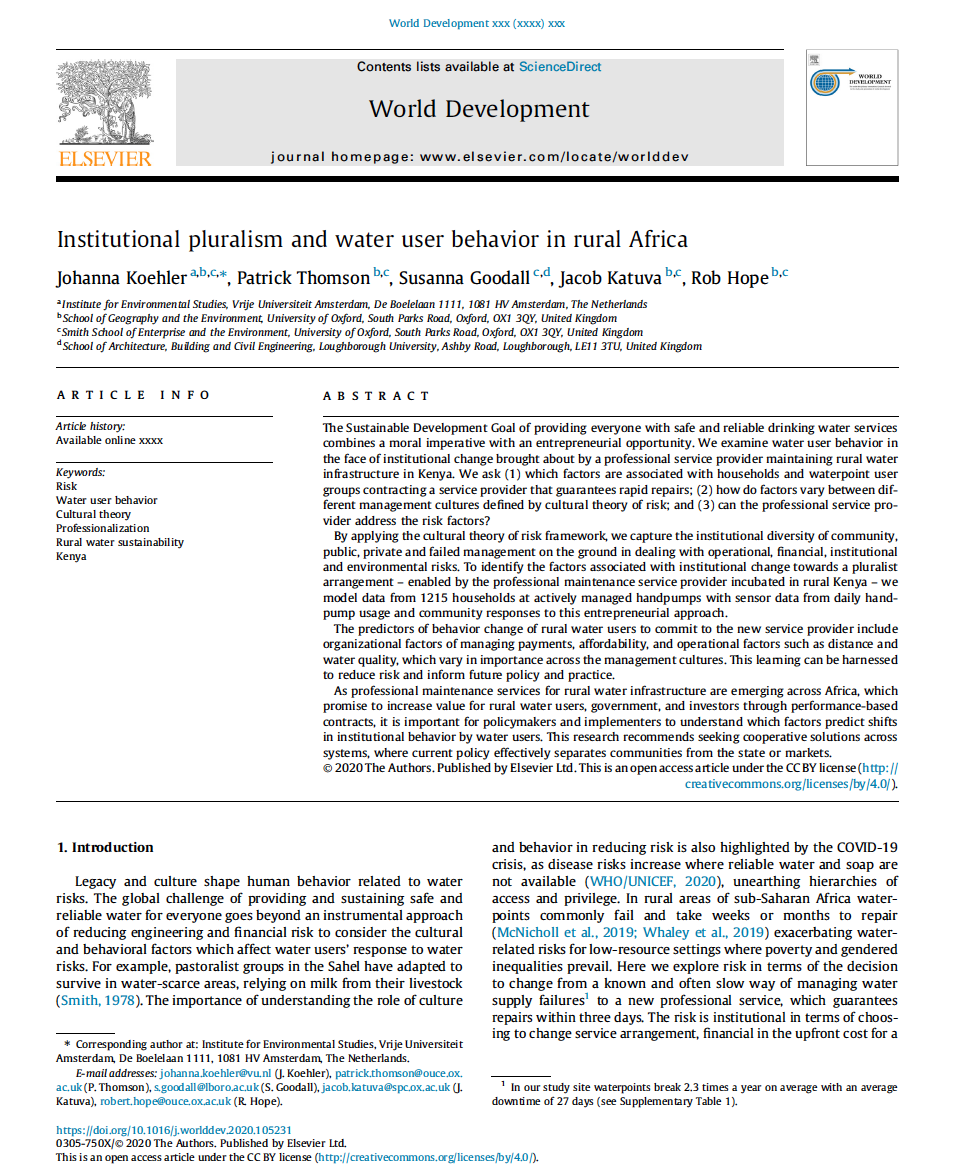Authors: Johanna Koehler, Patrick Thomson, Susanna Goodall, Jacob Katuva, Rob Hope
The Sustainable Development Goal of providing everyone with safe and reliable drinking water services combines a moral imperative with an entrepreneurial opportunity. We examine water user behavior in the face of institutional change brought about by a professional service provider maintaining rural water infrastructure in Kenya. We ask (1) which factors are associated with households and waterpoint user groups contracting a service provider that guarantees rapid repairs; (2) how do factors vary between different management cultures defined by cultural theory of risk; and (3) can the professional service provider address the risk factors?

